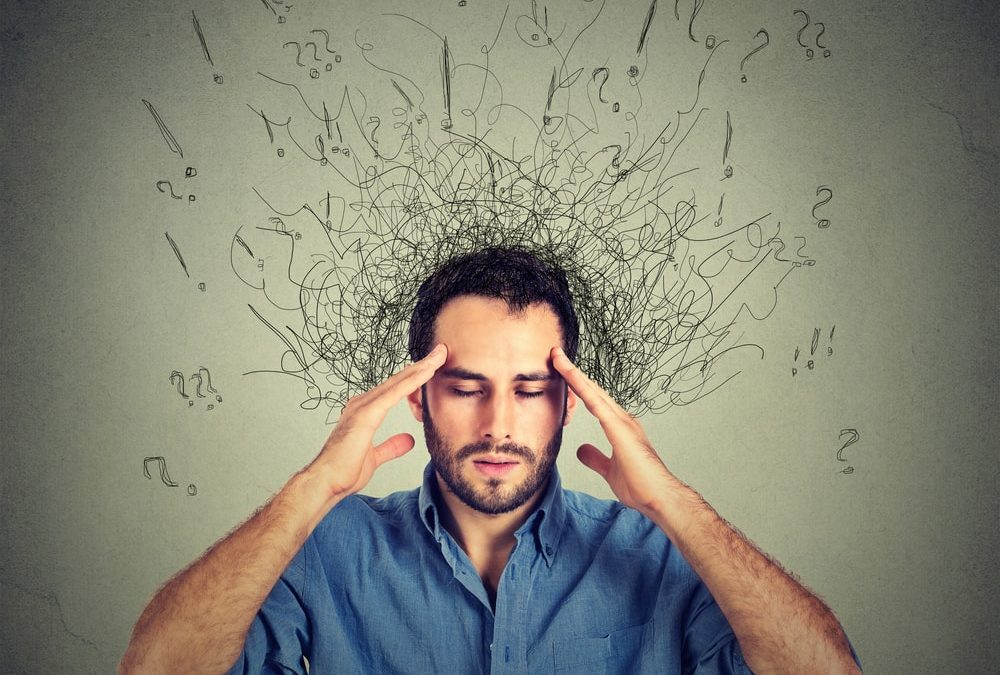Everyone experiences anxiety or panic attacks sometime in their lives. We’re all designed to protect ourselves from life-threatening or dangerous situations. Have you ever heard of the “fight” or “flight” response? This is when, due to stress, a huge surge of hormones such as adrenalin or cortisol is released telling your body to fight the danger or run from it. Without this humans would have died out years ago!
When you’re stressed, these elevated hormones, change the way we behave and our actions. For those of us who are constantly under stress – due to our work, family life or relationships – these hormones can remain at high levels in our body, leading to chronic symptoms of stress: panic attacks or acute anxiety.
In this post, I will be looking at how to identify the triggers that cause anxiety and panic attacks, and offer some advice for coping with them. If you think you may be suffering from stress and want more advice, please don’t hesitate to contact me.
Anxiety And Panic Attacks Are Not Uncommon
With constant pressures from work, family, and relationships, many of life’s demands can cause anxiety and panic attacks. It can affect everything you do and get in the way of addressing the issues that cause them. Acute anxiety can affect how you think, feel, behave and how you cope with everyday events.
If you think that you, your partner, a friend or family member is suffering from anxiety, here are some of the common signs:
- Sweating
- Loss of appetite
- Problems with sleeping
- Difficulty concentrating
- Panic Attacks
- Irritability
- Anxiousness
- Low self-esteem
- Short temper
- Overly cautiousness
- Alcoholism
- Muscle tension or pain
- Recurrent headaches/dizziness
- Acne
Managing your stress in daily life
In themselves, stress and anxiety are not illnesses, however, they can cause very serious illnesses if not addressed. Recognising the symptoms of stress as early as possible is so important, enabling you to find ways to manage it, and avoid adopting unhealthy coping methods such as smoking or drinking. By spotting the early signs you’re also able to prevent symptoms getting worse, which could potentially cause serious complications such as panic attacks or high blood pressure.
Luckily for us, there are many things we can do to manage our stress more effectively. We can learn how to use deep breathing techniques, relaxation techniques, start exercising regularly and learn self-hypnosis/meditation.
Recognising your stress/anxiety triggers
A diary is a great way of identifying what’s causing your stress. I suggest making a note of your stressful episodes for 2-4 weeks, which will help you spot your triggers and then address them:
- What were you doing at the time of the stressful episode?
- Make a note of the date, place and time.
- Who were you with?
- How did you feel emotionally?
- What were you thinking?
- How did you feel physically?
- Use a stress scale (0-10) 1 is the least stressed you feel and 10 is the most stressed you could ever feel)
You can then use the diary to:
- Work out what triggers your stress/anxiety
- Work out how you operate under pressure and when you get stressed
- Develop better coping mechanisms to deal with the stress and whether they work for you or not
Take action to tackle your stress quickly
There’s no single method that will work for everyone. However, there are simple things you can do to change and help relieve stress and anxiety such as relaxation techniques, exercise and talking to other people. Who would have thought that simply breathing and talking could actually reduce stress?! How cool!
There are some great tips here on the NHS’ website for managing stress: 10 Stress Busters
Get support for your stress
You might be thinking, “I have tried exercising, I have tried relaxing and yet still nothing still seems to be working. Why?” Don’t worry, Stress Anxiety Hypnotherapy can help you relax, regulate your sleep patterns and improve your relationship with people around you.
Hypnotherapy helps by exploring your inner-mind and find ways to change your perspective; making positive changes for a calmer and better lifestyle.
If you’re a little sceptical about hypnotherapy, and most people are!, you may like to read this blog post – Dispelling The Myths About Hypnotherapy


Recent Comments